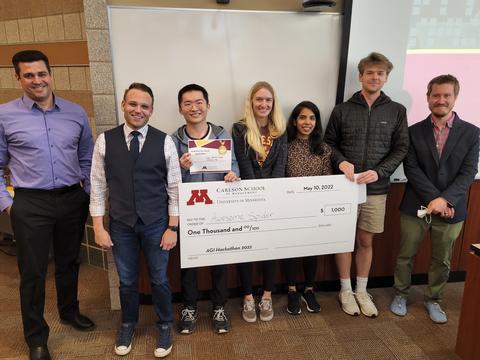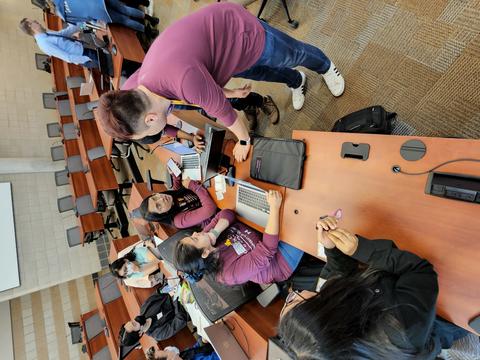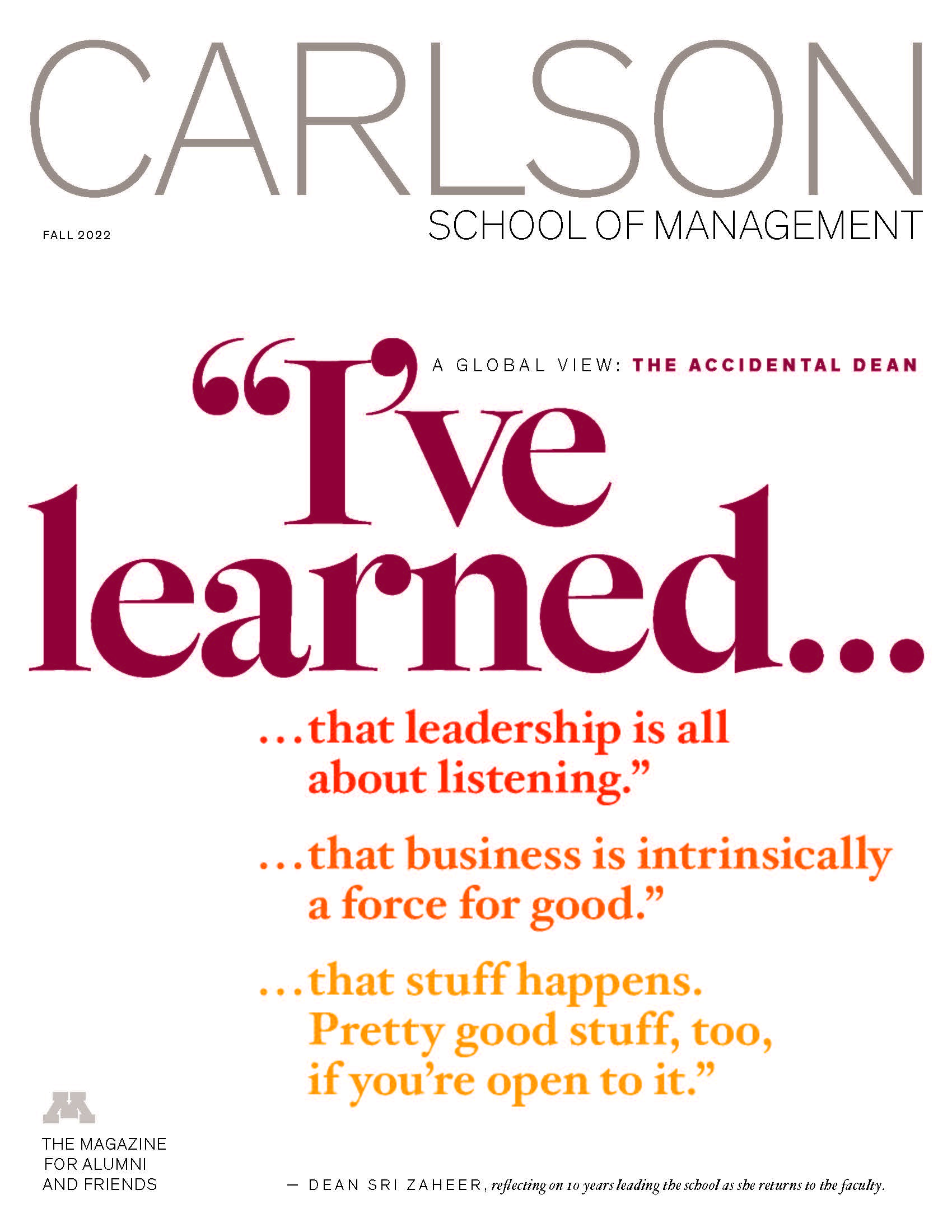
Analytics for Good Hackathon offers insights into DHS background study data
Friday, May 13, 2022
Data analysis uncovered during the inaugural Analytics for Good Hackathon may help inform policy changes in the Minnesota Department of Human Services background check process.
Background studies are required for certain jobs including child care, substance abuse counseling, and personal home care. A percentage of applicants are disqualified from such jobs following a background study, however, applicants can submit for reconsideration to become eligible for work or work with some restrictions.
The Hackathon challenged Carlson School of Management students to deliver business insights from the public background study data. In just 24 hours, the teams had to analyze aggregated DHS background study data from 2018 to 2019, develop insights, and showcase their findings in an easy-to-understand way.
Four finalist teams presented on Tuesday in front of a panel of judges made up of Carlson School alumni and DHS analytics employees. The winning team for the $1,000 cash prize consisted of Chensheng Zhao, ‘24 BSB; Gunnar Bowman, ‘23 BSB; Santoshi Diddi, ‘22 MABA; and Kristina Zignego, ‘23 MBA. Their key findings included:
- 96.5% of background study applicants were determined eligible for work, 3.5% were disqualified.
- Of those disqualified, only 35% sought reconsideration.
- Of those who sought reconsideration, about 65% qualified for work with some restrictions.
- African Americans were more likely not to pursue reconsideration for a disqualified determination. African Americans requested reconsideration at a rate that was 7% lower than the 35% request rate for the general population. Whites requested reconsideration at a rate that was 7% higher than that of the general population.
- The team recommended DHS provide more information in the disqualification notification letter to help applicants better navigate the reconsideration process, such as offering resources on how to request documentation, like police reports.
“Our analysis showed the racial disparity in requested reconsiderations, suggesting African Americans especially may have a lack of information or have trouble getting details about this part of the process,” said Zhao. “Including tips in the letter could help mitigate this and lead to more work eligibility in this group.”
The winning presentation reflected conversations currently underway with the Background Study Legislative Task Force. “The task force is working on this data right now for the Legislature,” said DHS Inspector General Kulani Moti. “Having the Hackathon teams review these public datasets and share these findings is going to help inform how we might help support the important work of that task force.”
Surprisingly, the winning team members did not know each other before joining the Hackathon but found successful chemistry.
“Going into the Hackathon was a bit intimidating because I didn’t know what to expect,” said Zignego. “Our team all brought different skills to the table and really supported each other through the analysis.”
About 45 students, making up nine teams, completed the challenge. A group of Master of Science in Business Analytics students organized the event with the goal of bringing together the fun of competition with experiential learning.
“Data analytics is about finding the story within the data,” said Gayathri Ramanathan, ‘22 MSBA, a Hackathon coordinator. “It’s a test of skill under the pressure of a tight deadline. All of the student teams really rose to the challenge and showed how meaningful data analytics can be.”
The Carlson School’s Analytics for Good Institute sponsored the event.


